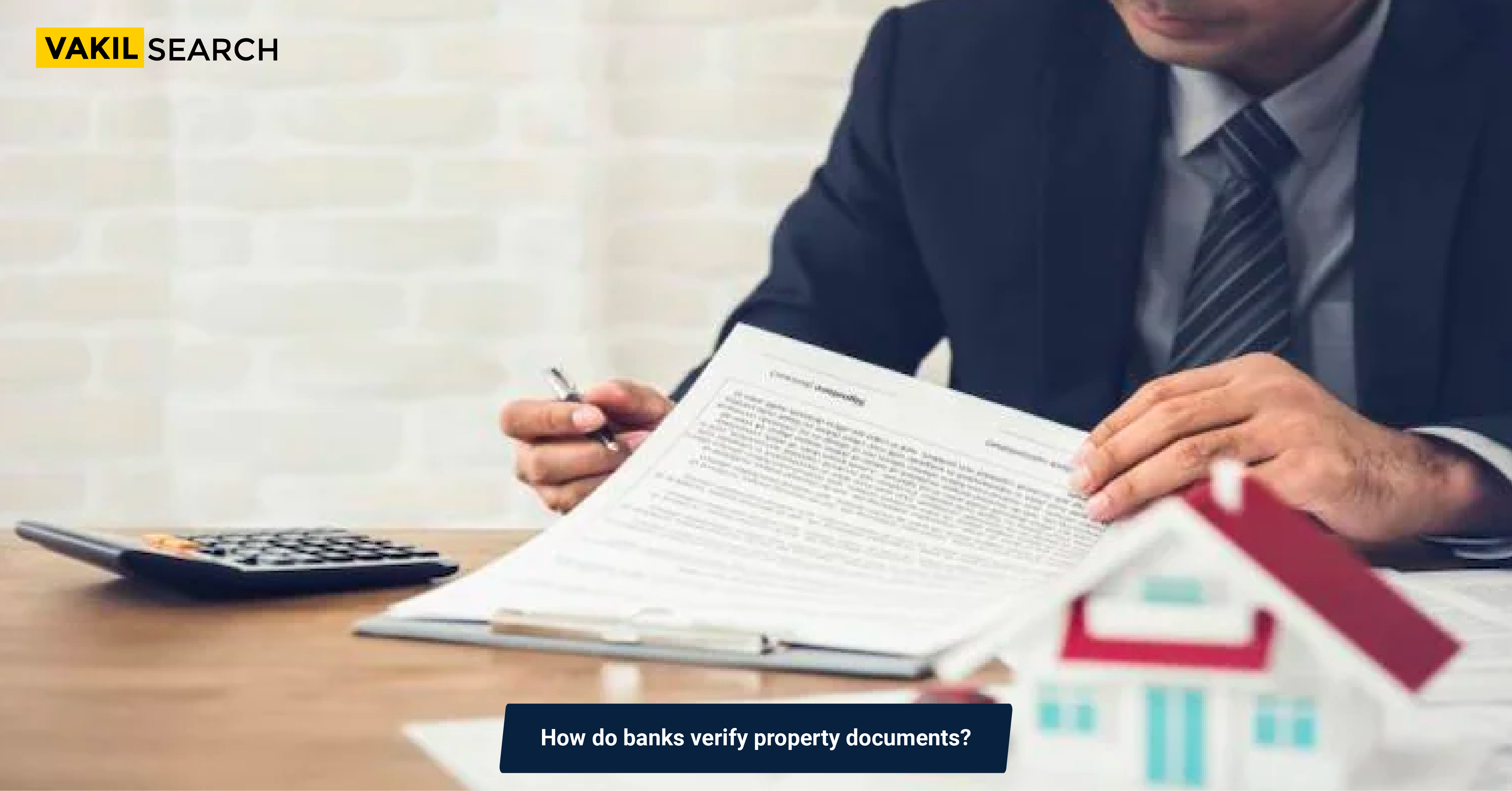Explore the pivotal role banks play in property transactions by meticulously verifying documents. Learn why this process matters and how Vakilsearch eases RERA compliance.
In the world of property transactions, banks play a pivotal role, and one of their most critical functions is the verification of property documents. This process is essential to ensure the security of transactions and protect the interests of both the buyers and the lenders.
In this article, we’ll delve into the step-by-step process of how banks verify property documents, the professionals involved, and the reasons behind these stringent checks. We’ll also highlight common discrepancies that banks often spot during this verification process.
The Importance of Document Verification
Before we dive into the details of the verification process, it’s crucial to understand why banks place such great emphasis on document verification in property transactions.
Banks are key stakeholders in property transactions, especially when it comes to home loans or mortgages. They provide substantial financial assistance, and in return, they need assurance that the property being financed is legally sound and free from encumbrances.
Step-by-Step Process of Document Verification
- Application Review: The process begins when a borrower applies for a home loan or mortgage. The bank’s legal team reviews the loan application and the property documents provided by the borrower.
- Document Collection: The bank collects all relevant property documents from the borrower. These documents typically include the Sale Deed, Title Deed, Encumbrance Certificate, and Occupancy Certificate, among others.
- Legal Scrutiny: The bank’s legal team carefully scrutinizes these documents. They verify the authenticity of the documents and ensure that they are in compliance with local property laws and regulations.
- Third-Party Verification: In some cases, banks may employ third-party verification services to conduct a thorough background check on the property. This includes checking for any pending legal disputes, outstanding dues, or discrepancies in property records.
- Valuation of the Property: Banks also assess the property’s value to determine if it aligns with the loan amount being sought. A professional appraiser may be involved in this step.
- Clearance from the Bank’s Legal Team: Once all checks are complete, the bank’s legal team gives clearance for loan disbursement. This signifies that they are satisfied with the property’s legal standing.
Professionals Involved in Document Verification
– Legal Teams: Banks employ in-house legal experts who specialize in property law. These professionals are responsible for ensuring that the property documents meet legal requirements.
– Third-Party Verification Services: In complex cases, banks may collaborate with external agencies specializing in property verification. These agencies conduct a thorough background check on the property to identify any issues.
| If you are planning to buy or sell a property, it is important to consult with a qualified lawyer to ensure that your interests are protected. Contact Vakilsearch experts today to learn more about our RERA registration and complaint-filing services! |
Common Discrepancies Identified by Banks:
During the document verification process, banks often come across discrepancies that need to be addressed before the loan can be approved. Some common discrepancies include:
- Title Discrepancies: Banks may find discrepancies in the property’s title, such as multiple claims to ownership or unresolved inheritance issues.
- Encumbrances: Outstanding loans or legal encumbrances on the property can raise red flags for banks.
- Inadequate Documentation: Incomplete or missing documents, especially related to property taxes or approvals, can delay the verification process.
The Takeaway
In conclusion, banks play a crucial role in property transactions by meticulously verifying property documents. This process is essential to safeguard the interests of both the lender and the borrower. Understanding the step-by-step verification process, the involvement of professionals, and common discrepancies can help ensure a smooth and secure property transaction.
For comprehensive assistance with RERA compliance, consider Vakilsearch’s services and simplify your property dealings. To know more, click here.
FAQs:
1. Can a property transaction proceed without bank document verification?
No, most banks require thorough document verification to ensure the legality and authenticity of the property being financed.
2. What should I do if my property documents have discrepancies ?
If discrepancies are identified, it's essential to resolve them with the help of legal experts from Vakilsearch before proceeding with the property transaction.
3. How can Vakilsearch assist with RERA compliance in property transactions?
Vakilsearch offers expert services for RERA registration and complaint filing. Our experts can help you ensure that all your property transactions are compliant with real estate regulations and guidelines.
Read more










